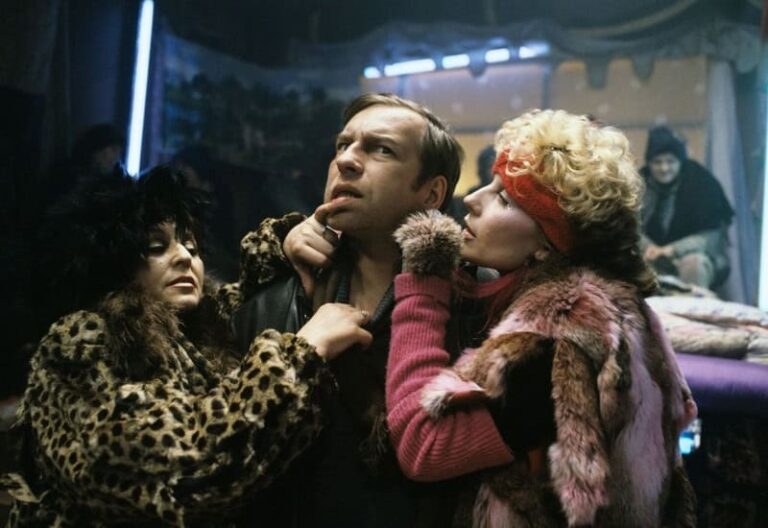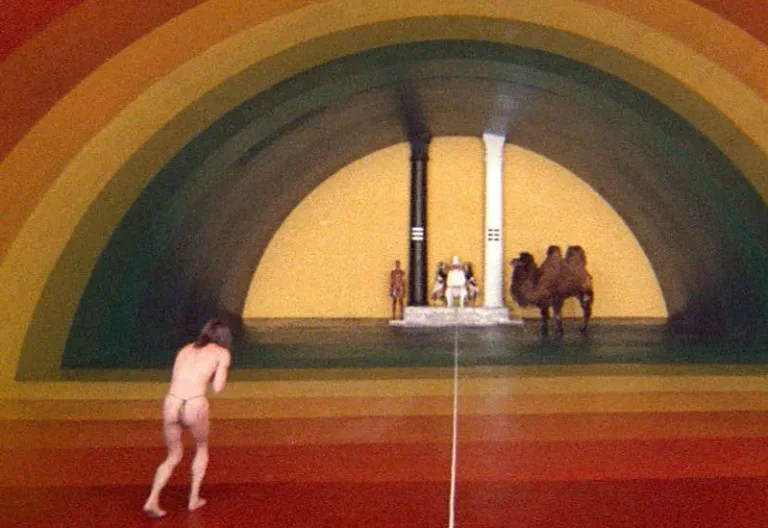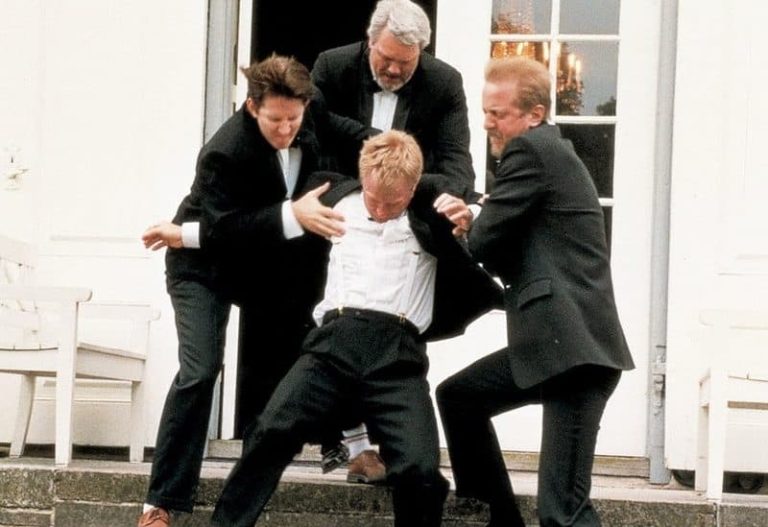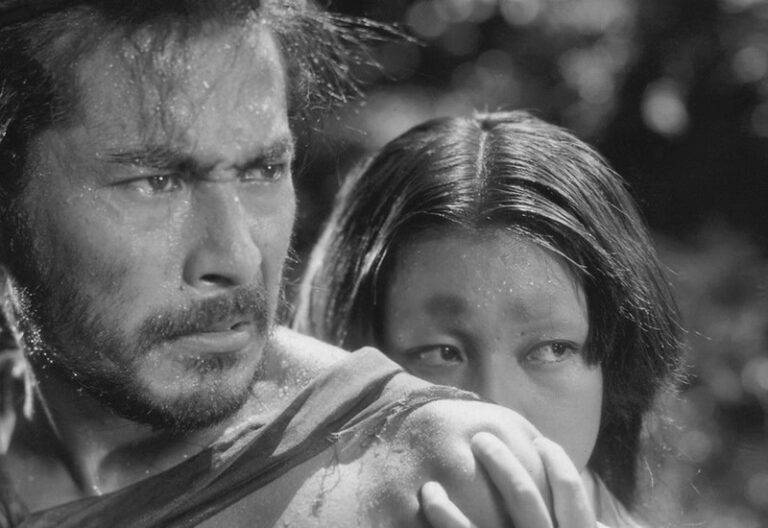the idiots review
film by Lars Von Trier (1998)
Von Trier’s first contribution to the newly established Dogme 95 movement that would later spawn dozens of films born from the minds of Von Trier and Thomas Vinterberg, follows criteria outlined in a joint manifesto authored by the two directors.
Review by: Aaron Jones | Filed Under: Film Reviews
February 29, 2024
Depiction versus advocacy comes to mind when I think of The Idiots, leaving me feeling incredibly divided after viewing it. On the one hand, the film seems to serve as an experiment in social psychology both in its execution of what it’s relaying and its reaction to how people respond to it, creating a cinematic version of the Milgram experiment, if you will. Von Trier creates a controversial position, riffing on behaviors that are considered socially insensitive—the kind of mocking imitations we were taught not to engage in from an early age because of their demeaning and hurtful consequences to those who suffer from disabilities.
During a time when the social discourse on diversity and inclusion is at a zenith, the film can feel like a derogatory gesture meant to tantalize rather than depict. In an easy attempt to be left off the hook, it can feel more in the realms of irresponsibility rather than subversion. Some may ask about the purpose of the film and how the end might justify the means. In a way, Von Trier answers this with the film, demonstrating that he does not feel compelled to offer justifications or excuses that explain the blatant disregard for social mores and political correctness. I would assume those familiar with Von Trier wouldn’t expect anything else from such an open provocateur.

At times, The Idiots feels like an arthouse version of Jackass in its attempts to divide and offend. Coming off more like narcissistic performance art in the service of unconscious needs, it eventually goes deeper, revealing the differences between the ways human beings process grief, trauma, stress, and the pain of existence through extremely personal and unorthodox methods. It presents the possibility that some of us are searching for the bliss of ignorance amidst the pressures of an ever-growing stressful social structure or that some could embrace a form of infantilism or mock Down’s Syndrome as a way of abandoning all social and moral responsibilities.
Whereas infants and those with disabilities are bound by their developmental potential, perhaps the film’s protagonists are choosing to imitate them through a conscious regression to mental states characterized by freedom from the chains of a “rational” mind, which include our moral responsibility to repress the landscape of our unconscious in the service of adhering to social norms, and the suffocating rules and expectations of “society.”

The tipping point of the film comes when the characters interact with people who actually have Down’s Syndrome and other disabilities, giving off the feeling of a cheap thrill attempting to expose the irony of interacting with those who may not be able to understand the mocking of their abilities, which, for me, lowered the film’s integrity exponentially.
Adding insult to injury, the film makes the people with disabilities the butt of a joke they are not privy to, leaving them unable to defend themselves, which comes off as a way to take something away from someone rather than to make a contribution to anything, especially art. It feels more like exploitation for the goal of entertainment.
Instead of focusing solely on the more problematic aspects of the film, if we examine The Idiots with an understanding that depiction does not necessarily translate to advocacy, I think it’s possible to find meaning beyond exploitation for the sake of entertainment and, perhaps, find some actual value within the film. I understand that by the mere suggestion of such a perspective, I am a hypocrite since there are plenty of films that I have judged harshly without entertaining the thought of their potential value despite their flaws. So, I am certainly not immune to what I am being critical of here. What I am left with is a provocative film about a collective counterculture exploring why we choose escapism over the pains of reality that challenged my perspective on many things.

Author
Reviewed by Aaron Jones. Based in California, he developed a passion for film from a young age and has since viewed over 10,000 films. His appreciation for the medium led him to film criticism, where he now writes for CinemaWaves, offering analysis of both contemporary releases and timeless classics. In addition to his work here, he has contributed to other publications as well. Feel free to follow him on Instagram and Letterboxd.
At a tiny Parisian café, the adorable yet painfully shy Amélie (Audrey Tautou) accidentally discovers a gift for helping others. Soon Amelie is spending her days as a matchmaker…
The world has been ravaged by nuclear war. The planet is frozen and radiation kills anyone that ventures outside of ‘The Dome’. Soft is a shepherd for the last remnants…
The scandal of the 1973 Cannes Festival, director Jodorowsky’s flood of sacrilegious imagery and existential symbolism in The Holy Mountain is a spiritual quest for…
In the mid-1990s, a group of Danish filmmakers, led by the visionary minds of Lars von Trier and Thomas Vinterberg, embarked on a cinematic journey that would…
The Rashomon Effect refers to a phenomenon where different people provide contradictory interpretations of the same event. The term originated from Akira Kurosawa’s…
Postmodernist film emerged in the latter half of the 20th century, rooted in the broader cultural and philosophical movement of postmodernism. It started as a reaction…






